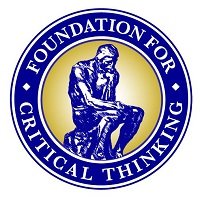
Concepts are ideas we use in thinking. They enable us to group things in our experience into different categories, classes, or divisions. They form the basis for the labels we give things in our minds. They represent the mental map (and meanings) we construct of the world, the map that tells us the way the world is. Through our concepts we define situations, events, relationships, and all other objects of our experience. All of our decisions depend on how we conceptualize things, and all subjects or disciplines are defined by their foundational concepts. For instance, a fundamental concept in ecology is ecosystem, defined as a group of living things dependent on one another and living in a particular habitat. Ecologists study how differing ecosystems function and how they interrelate with other ecosystems. They are concerned with ecological succession - the natural pattern of change occurring within every ecosystem when natural processes are undisturbed. This pattern includes the birth, development, death, and then replacement of ecological communities. Ecologists have grouped communities into larger units called biomes, regions throughout the world classified according to physical features, including temperature, rainfall, and type of vegetation. Each of these is a seminal concept that cannot merely be seen (or memorized) as just one of many equally important details, but as fundamental for thinking one’s way through virtually any ecological issue, such as imbalance, energy, nutrients, population growth, diversity, habitat, competition, predation, parasitism, adaptation, coevolution, and conservation.
When we master foundational concepts at a deep level, we are able to use them to understand and function better within the world. Can you identify the fundamental concepts in your discipline or profession? Can you explain their role in thinking within your discipline or profession? How can you help students and/or colleagues take command of these concepts? Can your students give examples of how they are important in life? These are some of the questions to be explored in this session.